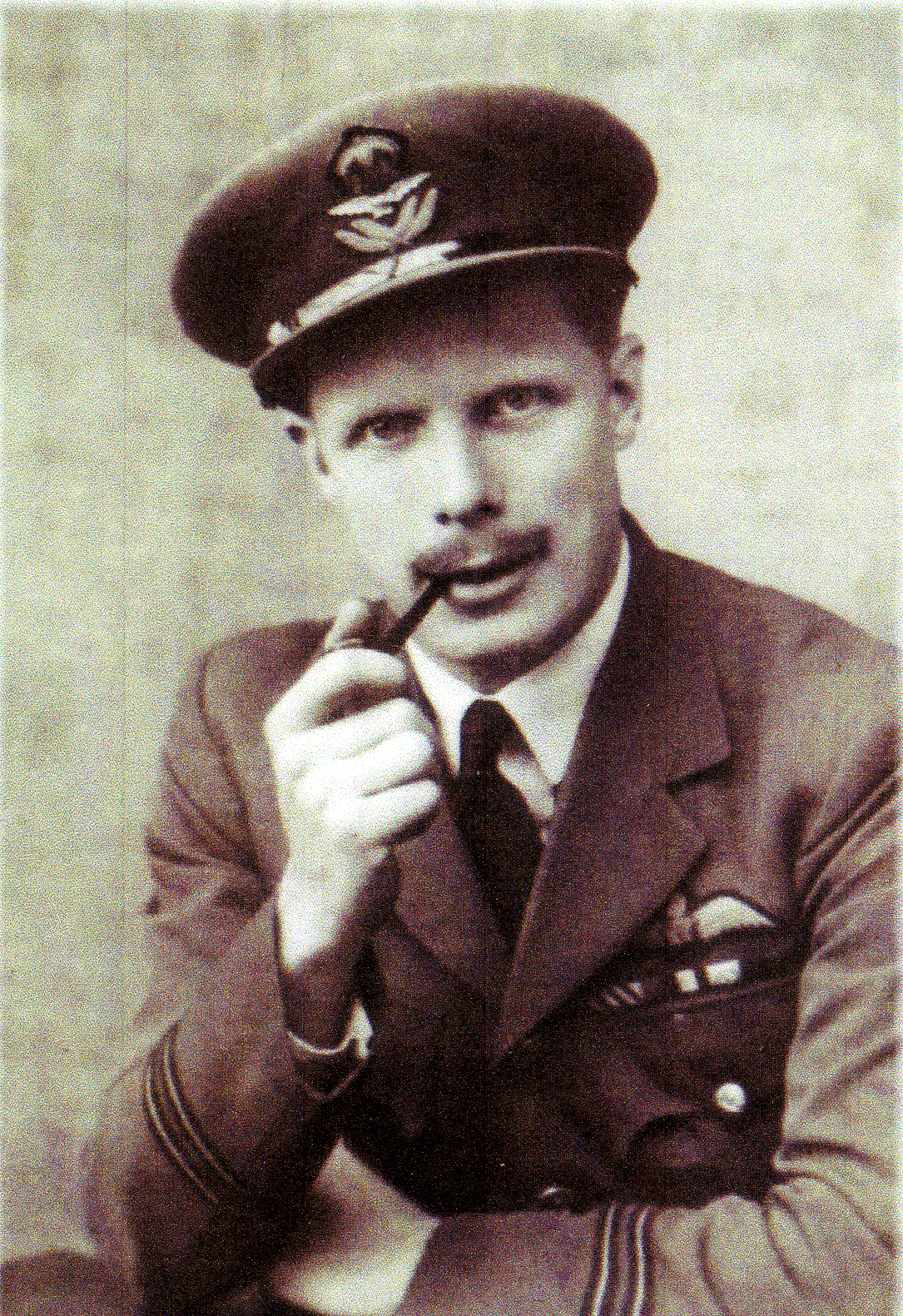
Ronald James Auckland MBE DFC was born: 8 January 1922, in Portsmouth and died: 22 July 2016, in Guildford, aged 94.
Educated at Portsmouth High School, Ron Auckland joined the Civil Service in June 1938, working for the Admiralty within the then Royal Naval Dockyard Portsmouth. When war came he perhaps experienced more than most, he and his family were bombed out of their home and on duty as fire officer he had to carry out the dead and rescue the injured after an enemy bomb exploded on a crowded air-raid shelter. Although in a reserved occupation he was determined to join up as soon possible. Like most young men he wanted to fly and so enlisted in the RAF Volunteer Reserves and after the normal basic training he was shipped out to Canada and the USA for basic and advanced flying training. He returned home with the rank of Sergeant and more importantly his wings. He was promoted Pilot Officer in December 1943, Flying Officer in June 1944 and Flight Lieutenant in December 1945. He was nominated to fly the Lancaster bomber and was posted to 61 Sqn, RAF Skellingthorpe, part of Bomber Command’s 5 Group based in Lincolnshire.
He was to stay with 61 Sqn until early 1945, completing 38 operational missions. May 1944 was a particularly challenging period for 5 Group and 61 Sqn and it was during this period that on two separate occasions PO Auckland brought home both aircraft and crew after suffering severe damage to his aircraft. On 19 May, during a raid on the Tours marshalling yards, on final approach and waiting for the bomb-aimer to order ‘Bomb doors open’ his aircraft was hit by another Lancaster flying in almost the opposite direction. Another foot or so and there would have been one almighty bang. He managed to maintain control of the aircraft, continue the run and drop their bombs. Quiet an achievement given that he was now flying on only two engines, the port outer propeller was bent backwards and 12 feet of the port wing was missing. The Perspex top of the cabin just above the pilots head was also smashed which reduced the cockpit temperature dramatically. It was a long, slow, cold and dangerous return for the crew especially as German night fighters were on the look out for damaged aircraft such as his. He landed safely at RAF Tangmere in Sussex although 61 Sqn base was in Lincolnshire. Later that month during a raid on Toulouse, his aircraft was hit by anti-aircraft fire and sustained much damage. The rudder control was severed, the elevator trimming tabs were shot away, the bomb doors could not be closed, the fuselage was pierced in many places and worst of all the bomb-aimer had been killed and the engineer badly wounded. Although the aircraft became extremely difficult to control and the general direction was difficult to maintain he managed to get aircraft home. Home on this occasion was a crash landing at Exeter and a citation for the award of an immediate DFC. The aircraft piloted that day was O for Oboe, which had also been the 61 Sqn Lancaster piloted by Bill Reid when he won his VC. O for Oboe would never fly again. When the war was over, he returned to the Civil Service and the Admiralty soon to become the Ministry of Defence. His work took him from Portsmouth to Bath and then to London with the Defence Sales Organisation. It was with this organization that his dedication and energy was rewarded with the award of the MBE. After retiring from the Civil Service he worked for the Defence Manufacturers Association (DMA) for a several years before calling it a day. Some of his war-time memories are recalled by John Nichol in his book entitled ‘The Red Line’
For more Veterans’ Stories see our Blog Space here